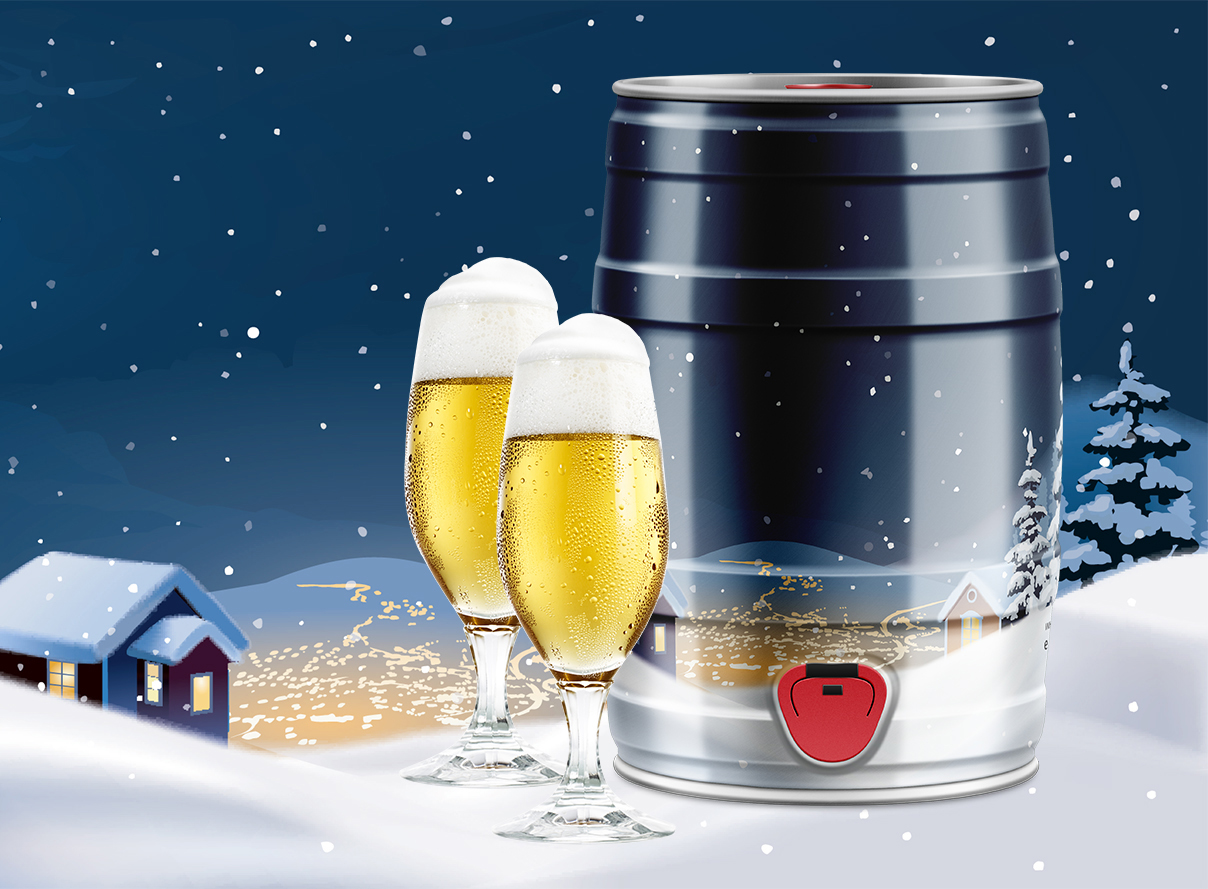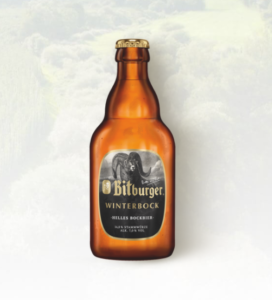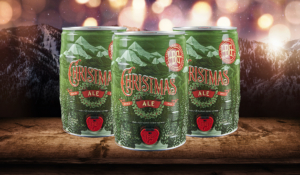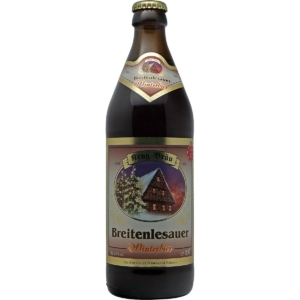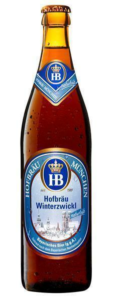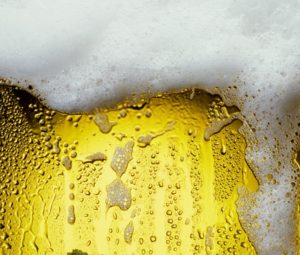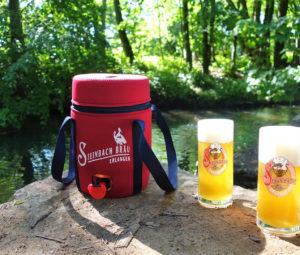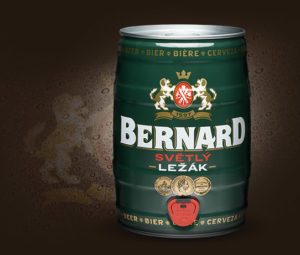In general, winter beer refers to beer styles specifically brewed for the cold winter season. These beers often have characteristics that make them particularly enjoyable in low temperatures. However, there are no strict rules or standards for winter beers, and the exact definition of winter or Christmas beers can vary significantly depending on the brewery and region.
Winter beer: Why it’s so popular
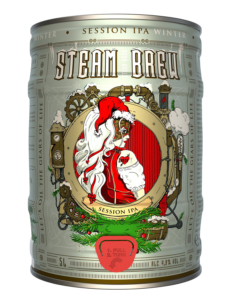
Typically, winter beers often contain slightly higher alcohol levels to achieve a warming effect. They can also be darker and maltier, with flavors of spices like cinnamon, cloves, or ginger, giving the beer a festive touch. Some winter beers are also referred to as “Winter Warmers.” It’s important to note that the term “winter beer” is not standardized, and different breweries may have different interpretations. Hence, there can be a wide range of styles and flavor profiles sold under this designation.
The origin of winter beer tradition
The tradition of brewing special beers for the winter season likely has several origins. Some reasons for this tradition could include:
- Historical brewing traditions: In many cultures, beers had seasonal variations often linked to available ingredients and climatic conditions. During the winter months, it might have been challenging to get fresh ingredients, leading brewers to focus on more durable components such as stronger malts and preservatives like spices.
- Celebratory occasions: Winter is often associated with various celebrations, including Christmas and New Year. Brewers might have developed special beers for these festive occasions to enhance the holiday spirit and offer something unique to people
- Warming properties: Beers with higher alcohol content can have a warming effect. In cold winter months, beers with higher alcohol content might be perceived as pleasant for internal warmth
- Flavor diversity: The use of spices and other additives in winter beers can contribute to a broader range of flavor profiles. This can make beer consumption during the winter months more interesting and appealing.
The tradition of brewing winter beers can vary from region to region, and many modern breweries take the freedom to be creative, offering unique interpretations of winter beers.
Winter beer tradition in Europe
There is a variety of winter beers in Europe, and the selection can vary significantly depending on the region and brewery. Some of the well-known types of winter beers or beer styles often associated with the winter season include:
- Christmas beers: These beers are often brewed with Christmas spices like cinnamon, cloves, nutmeg, and orange peel. They often have a dark color and may exhibit sweet-malty flavors
- Winter Warmers: A beer style often brewed with higher alcohol content to achieve a warming effect. These beers can include various spices and additional ingredients
- Bock beers: Bock beers are strong with higher alcohol content. The traditional Doppelbock is a robust, malty beer often enjoyed in winter.
- Stout and Porter: Dark beers like Stout and Porter are popular in the winter months. They often feature flavors of chocolate, coffee, and roasted malt
- Belgian winter beers: Belgian breweries are known for their diversity and creativity. There are Belgian winter beers with complex flavors ranging from fruity and spicy to sweet
- Beers with seasonal ingredients: Some breweries use seasonal ingredients like pumpkin or cranberries to create special winter beers.
Winter beer tradition from a marketing perspective: More popular than ever!
The production and sale of seasonal Christmas beer can be a good business for breweries for various reasons. Marketing with seasonal themes and limited-edition products is currently in high demand.
- Seasonal demand: The Christmas season is the time of year when people seek special and festive products. Christmas and winter beers provide an excellent opportunity for breweries to stand out during this season and offer unique, seasonal indulgence products.
- Customer loyalty: Winter beers can create strong customer loyalty. Many people look forward to trying seasonal products and actively seek out special beers to celebrate the holidays. If a brewery produces a popular Christmas or winter beer, it can help bind customers to the brand in the long term.
- Marketing and promotion: Introducing winter beer offers breweries the opportunity to conduct creative marketing and advertising campaigns. This can raise brand awareness, boost sales, and strengthen the market presence.
- Limited availability: Many breweries produce winter beers in limited quantities. Limiting availability can increase demand, as consumers feel they are getting a special and exclusive product available only at a certain time of the year.
- Diversity in product offerings: Introducing Christmas and winter beers allows breweries to diversify their product line. By creating different styles of seasonal beers, they can appeal to a broader audience and satisfy the needs of various taste preferences.
The success of Christmas beers depends on the quality of the product, the brand’s recognition, and the brewery’s ability to understand and meet consumers’ special needs and desires during the holiday season.
